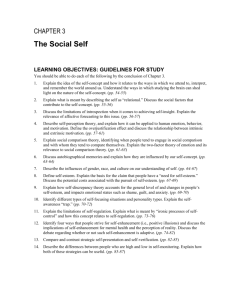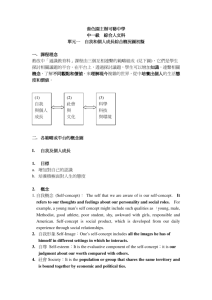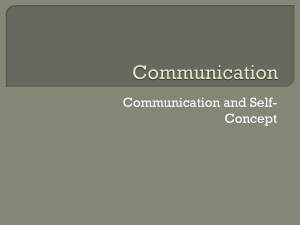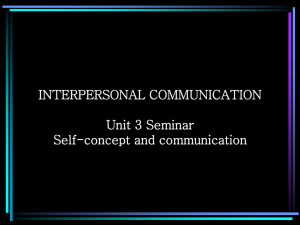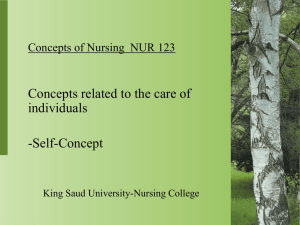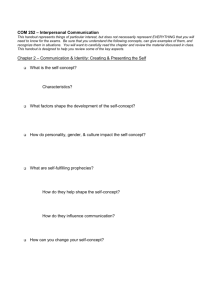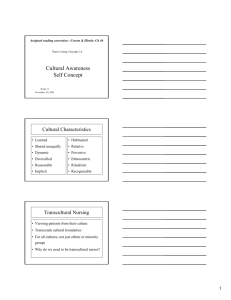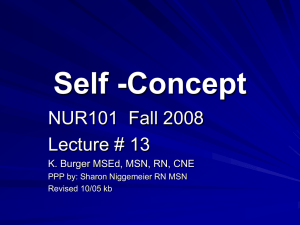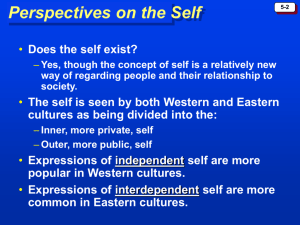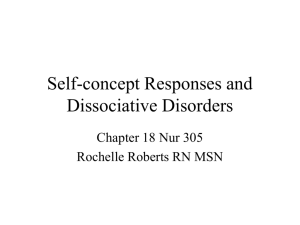Chapter 27 Self
advertisement
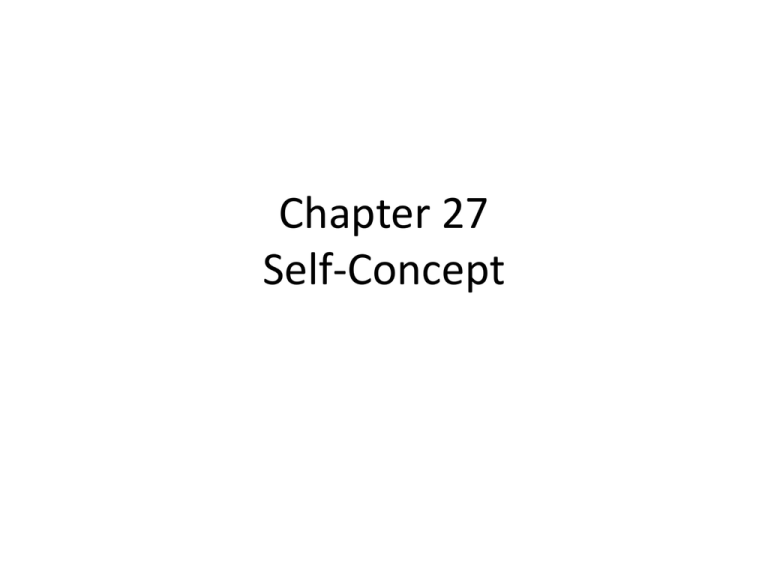
Chapter 27 Self-Concept Scientific Knowledge Base • Parents and primary caregivers have influence on the development of children. • Individuals learn and internalize cultural influences on self-concept and self-esteem in childhood and adolescence. • Job satisfaction and job performance in adulthood are linked to self-esteem. • The sense of self is often negatively affected in older adulthood. Nursing Knowledge Base: Development of Self-Concept • Development of self-concept is a lifelong process. • Erikson’s psychosocial theory: – Helpful in understanding key tasks – Each stage builds on tasks of the previous stage. – Successful mastery leads to a sense of self. Components and Interrelated Terms of Self-Concept • Identity: – Involves the internal sense of individuality, wholeness, and consistency of self • Body image: – Involves attitudes related to physical appearance, structure, or function • Role performance: – How individuals carry out their significant roles Stressors Affecting Self-Concept • • • • • • • • Identity stressors Body image stressors Role performance stressors Role conflict Role ambiguity Role strain Role overload Self-esteem stressors Family Effect On Self-Concept Development • Family plays a key role. • Children develop a basic sense from family. • Strong parental support and parental monitoring create positive effects. • Family and cultural influences can be positive or negative. The Nurse’s Effect on the Client’s SelfConcept • Nurses need to remain aware of their own feelings, ideas, values, expectations, and judgments: – Use a positive and matter of fact approach. – Build a trusting relationship. – Be aware of facial and body expressions. Self-Concept and the Nursing Process • • • • • Assessment Nursing diagnosis Planning Implementation Evaluation Questions?

